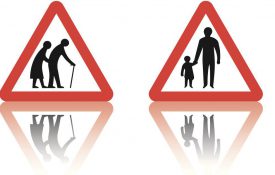-
Are cycle helmets really safe? Psychologists discover people take MORE risks when wearing protective head gear
Daily Mail: Cycle helmets are promoted as a way of reducing injury if someone is knocked off their bike, but new research suggests they may be increasing the risk of accidents in the first place.
-
Fuzzy Thinking Gives Adolescents a Clearer View of Risk
Although many people make risky decisions, one group — adolescents — are the most likely to engage in risky behavior. According to one theory explaining the developmental trajectory of risky decision-making — the imbalance theory
-
People take more risks when wearing helmets, potentially negating safety benefits
Science: Helmets can reduce the risk of traumatic brain injury by almost 20%. But what if we take so many risks when wearing them that we lose the protective edge they provide? This could be
-

Older Adults Are Bigger Risk Takers in High-Poverty Countries
People’s propensity to take physical, social, legal, or financial risks typically decreases as they age, but not in countries with high poverty and income inequality, according to new research published in Psychological Science, a journal
-
Stop fussing over measles vaccination rates. Start worrying about flu shots.
The Washington Post: You probably heard about the Disneyland measles outbreak last year. One infected person is thought to have visited the theme park, and thanks in part to low immunization rates, 142 people in
-
Risky Business: Teens Brains Behind the Wheel
Teen drivers are notorious for their bad decisions behind the wheel. According to the US Centers for Disease Control, the risk of car crashes is higher among 16-19-year-olds than among any other age group. In

